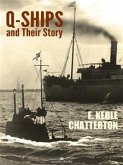Preface
Two influences have urged me to make a study of the subject of the prisoners of war in Britain.
First: the hope that I might be able to vindicate our country against the charge so insistently brought against her that she treated the prisoners of war in her custody with exceptional inhumanity.
Second: a desire to rescue from oblivion a not unimportant and a most interesting chapter of our national history.
Whether my researches show the foregoing charge to be proven or not proven remains for my readers to judge. I can only say that I have striven to the utmost to prevent the entrance of any national bias into the presentation of the picture.
As to the second influence. It is difficult to account for the fact that so interesting a page of our history should have remained unwritten. Even authors of fiction, who have pressed every department of history into their service, have, with about half a dozen exceptions, neglected it as a source of inspiration, whilst historical accounts are limited to Mr. Basil Thomson’s Story of Dartmoor Prison, Dr. T. J. Walker’s Norman Cross, and Mr. W. Sievwright’s Perth Depôt, all of which I have been permitted to make use of, and local handbooks.
Yet the sojourn among us of thousands of war prisoners between the years 1756 and 1815 must have been an important feature of our national life—especially that of officers on parole in our country towns; despite which, during my quest in many counties of England, Scotland, and Wales, I have been surprised to find how rapidly and completely the memory of this sojourn has faded; how faintly even it lingers in local tradition; how much haziness there is, even in the minds of educated people, as to who or what prisoners of war were; and how the process of gathering information has been one of almost literal excavation and disinterment. But the task has been a great delight. It has introduced me to all sorts and conditions of interesting people; it has taken me to all sorts of odd nooks and corners of the country; and it has drawn my attention to a literature which is not less valuable because it is merely local. I need not say that but for the interest and enthusiasm of private individuals I could never have accomplished the task, and to them I hope I have made sufficient acknowledgement in the proper places, although it is possible that, from their very multitude, I may have been guilty of omissions, for which I can only apologize.
Two influences have urged me to make a study of the subject of the prisoners of war in Britain.
First: the hope that I might be able to vindicate our country against the charge so insistently brought against her that she treated the prisoners of war in her custody with exceptional inhumanity.
Second: a desire to rescue from oblivion a not unimportant and a most interesting chapter of our national history.
Whether my researches show the foregoing charge to be proven or not proven remains for my readers to judge. I can only say that I have striven to the utmost to prevent the entrance of any national bias into the presentation of the picture.
As to the second influence. It is difficult to account for the fact that so interesting a page of our history should have remained unwritten. Even authors of fiction, who have pressed every department of history into their service, have, with about half a dozen exceptions, neglected it as a source of inspiration, whilst historical accounts are limited to Mr. Basil Thomson’s Story of Dartmoor Prison, Dr. T. J. Walker’s Norman Cross, and Mr. W. Sievwright’s Perth Depôt, all of which I have been permitted to make use of, and local handbooks.
Yet the sojourn among us of thousands of war prisoners between the years 1756 and 1815 must have been an important feature of our national life—especially that of officers on parole in our country towns; despite which, during my quest in many counties of England, Scotland, and Wales, I have been surprised to find how rapidly and completely the memory of this sojourn has faded; how faintly even it lingers in local tradition; how much haziness there is, even in the minds of educated people, as to who or what prisoners of war were; and how the process of gathering information has been one of almost literal excavation and disinterment. But the task has been a great delight. It has introduced me to all sorts and conditions of interesting people; it has taken me to all sorts of odd nooks and corners of the country; and it has drawn my attention to a literature which is not less valuable because it is merely local. I need not say that but for the interest and enthusiasm of private individuals I could never have accomplished the task, and to them I hope I have made sufficient acknowledgement in the proper places, although it is possible that, from their very multitude, I may have been guilty of omissions, for which I can only apologize.









